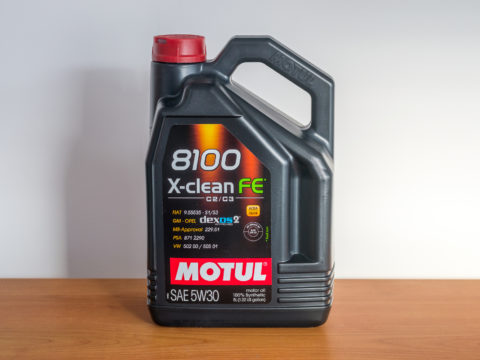The answer to this question depends on the engine oil used and the driving conditions. However, most engine oils should be changed every 5,000 miles or every six months, whichever comes first.

Contents
Why Is an Oil Change Necessary?
Just like your car needs gasoline to run, it also needs oil to lubricate the engine. Over time, the oil breaks down and becomes less effective at doing its job. That’s why it’s crucial to get an oil change regularly.
It helps to keep your engine running smoothly and prevent major repairs down the road. Plus, it’s a lot cheaper than a new engine! So if you want to keep your car in good condition, get an oil change regularly.
Oil Change Time vs. Mileage
Changing your car’s oil is one of those necessary evils that every driver has to deal with. But how often should you be changing your oil? The answer, it turns out, is a bit complicated.
For years, the accepted wisdom was that you should change your oil every 3,000 miles.
However, many modern cars are now equipped with sensors that can track engine conditions and provide more accurate information on when an oil change is needed.
As a result, many carmakers now recommend changing your oil every 5,000 miles.
Of course, this is just a general guideline – your driving habits, the type of oil you use, and other factors can all affect how often you need to change your oil.
So if you’re unsure when to change your oil, it’s always best to consult your owner’s manual or talk to a qualified mechanic.
How Long Can You Go Past Your Oil Change?
Most carmakers recommend an oil change every 5,000 miles or so. However, if you frequently drive in stop-and-go traffic or under extreme conditions, you may need to change your oil more frequently.
And if you want to be extra careful, you can always err on the side of caution and get an oil change every 3,000 miles or so. Remember: when it comes to your car’s engine, it’s better to be safe than sorry.
With Non-Synthetic Oil?
According to most carmakers, you can drive 7,500 miles or more between oil changes with synthetic motor oil.
That said, a number of factors can affect how often you need to change your oil, including the type of vehicle you drive, your driving habits, and the conditions of the roads you typically travel on.
If you tend to drive long distances on highways in good weather, you can probably go a few thousand miles longer between oil changes.
However, if you frequently drive in stop-and-go traffic or in extreme temperatures, you may need to change your oil more often.
Ultimately, it’s best to consult your owner’s manual or a trusted mechanic to estimate how often you should change your oil.
With Full Synthetic Oil?
If you’re using full synthetic oil, you may be able to go up to 15,000 miles before changing your oil. However, checking your owner’s manual for specific recommendations is always best.
And even if you’re using synthetic oil, it’s still a good idea to get your oil changed every six months.
That will help to prevent sludge buildup and keep your engine running smoothly. So when it comes to oil changes, synthetic or not, it’s always better to err on the side of caution.

What Happens If You Go too Long Without an Oil Change?
If you’ve gone too long without an oil change, you know it’s not a pleasant experience. Your car makes strange noises, smells bad, and your engine starts to sound like a machine gun.
But what exactly happens when you go too long without an oil change? Here are four consequences that can occur:
Your Car’s Engine Will Start To Suffer
Without clean oil, your engine will have to work harder to get the same level of performance. That can lead to increased wear and tear, decreased fuel economy, and engine failure.
You’ll Start To See and Smell Oil Leaking
As the oil breaks down, it will start to form sludge and other deposits that can clog up your engine and cause all sorts of problems.
Not only is this stuff gross, but it can also be dangerous if it gets into your car’s cooling system or if it causes an engine fire.
Your Car Will Be Less Reliable
If you rely on your car to get them from point A to point B, you don’t want to risk breaking down because you skipped an oil change.
By getting regular oil changes, you can help keep your car in top condition and decrease the chances of a breakdown.
It Will Cost You More Money in the Long Run
Replacing an engine is expensive, and it’s something that could easily be avoided with regular oil changes. In addition, skipping an oil change can void your warranty, leaving you on the hook for any repairs that need to be made.
Oil FAQs
Here are some of the frequently asked questions about car oil.
How often should you change your car oil?
Depending on the make and model of your car, the type of oil you use, and your driving habits, you may need to change your oil anywhere from every 3,000 miles to every 10,000 miles.
However, a few general guidelines can help you figure out how often to change your car’s oil. First, if you use conventional motor oil, you should generally change it every 3,000 to 5,000 miles. However, if you use synthetic motor oil or drive in harsh conditions (think extreme heat or cold), you can usually go a bit longer between changes.
Ultimately, the best way to figure out how often to change your car’s oil is to consult your owner’s manual or talk to a qualified mechanic. With their help, you can develop a plan to keep your car running smoothly for years.
Is it ok to go 500 miles over your oil change?
If you’re the type who likes to push your luck, then you might wonder if it’s ok to go 500 miles over your oil change.
Unfortunately, going even a few hundred miles over your oil change can have serious consequences for your engine. Doing so can put unnecessary stress on your engine and lead to serious problems down the road.
Can you drive with oil change light on?
The short answer is yes; you can drive with the oil change light. However, it’s not advisable to do so for several reasons. First, the light is there for a reason – to remind you that it’s time to change your oil.
Driving with old oil can strain your engine and lead to costly repairs down the road. Additionally, driving with the oil change light on may void your warranty, so it’s best to play it safe and get your oil changed as soon as possible.
How long does an oil change take?
Oil changes don’t take too long – most can be done in under an hour. Many oil change shops allow you to even stay in your car while they quickly service the engine. That said, oil changes at a car dealership typically take longer and may require you to leave and pick up your car later.














